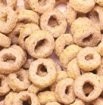When foods become drugs
The one golden rule when marketing food or supplement products for specific health benefits is that these must in no way imply they can cure or prevent a condition.
If this occurs, the product automatically enters the realm of drugs. These are governed by a whole new set of rules and regulations, and hold a completely different position in consumer minds.
Warning letters
As a result, ensuring that functional food and supplement products do not overstep the drug line is one of FDA’s top priorities when it comes to regulating the use of health claims and product marketing.
The agency has three major types of enforcement options: advisory, administrative and judicial. However, advisory action – in the form of a warning letter – tends to be the most frequent course pursued by the agency, which said this year in a trade show presentation that it “almost always gives people the opportunity to make corrections".
Omega-3s as drugs
In a warning letter sent in July this year, FDA told LifeGuard Health that its omega-3-containing products were marketed in a way that classified them as drugs.
The agency, which generally gives companies 15 days to respond with a description of proposed corrective action, took issue with the way the products were positioned to benefit conditions including heart disease, Alzheimer’s and behavioral disorders.
Some of the marketing claims highlighted by FDA were:
· "Cardio Omega Benefits is the perfect choice for people concerned about: Cardiovascular Disease; High Cholesterol . . ."
· "Randomized clinical trials have shown that Omega-3 essential fatty acid (EFA) supplements can reduce cardiovascular events such as heart attacks, stroke and even death."
· "Known as the "brain food" omega-3, DHA has been studied for its impact on reducing . . . early onset Alzheimer's disease and dementia."
· "Medical research clearly demonstrates the benefit of Omega-3 supplementation for children. Documented benefits include . . . a decreased incidence of allergies and asthma and a reduction of the symptoms of ADD and ADHD."
Fruit claims
In a letter sent to Hato Potrero Farm in April this year, FDA highlighted promotional claims on drinkable fruit yogurts that were “serious violations” of the Federal Food, Drug, and Cosmetic Act, which again caused the products to be drugs. These included:
· "Strawberries contain relatively high quantities of ellagic acid ... hemorrhage [is] inhibited by ellagic acid."
· "[P]ineapple has benefits for some intestinal disorders ...."
· "Due to their astringent properties, mature guava fruits, are used in local medicines to treat gastroenteritis . . . and dysentery. Guavas significantly reduce serum total cholesterol, triglycerides, and blood pressure with the opposite effect (an explicit increase) in high-density lipoprotein (HDL) or good cholesterol"
Drinks that cure
In February this year, FDA sent a warning letter to Herbal Hope, notifying it that some of its products were promoted for conditions that cause the products to be drugs. Claims the agency objected to included:
· "A powerful diabetes drink, this herbal formula has been known to support the body (sic) ability to repair the pancreas..."
· "Arthritis drink...this formula has been known to repair the cartilage in the various joints throughout the body."
· "Created for HIV and AIDS patients, this drink has been known to raise the T-Cell count and reduce the Viral-Load in sufferers."
To view warning letters sent by FDA, click here.







